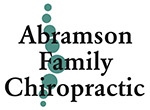Wrist Manipulation Helps Patients with Tennis Elbow
For patients with lateral epicondylitis—also known as tennis elbow—a recent study found that manipulative therapy applied to the wrist may improve grip strength. The finding suggests that dysfunction in the wrist may contribute to tennis elbow, and the wrist should be evaluated in patients seeking care for the condition. Journal of Hand Therapy, March 2023
Fatal Falls Among Seniors Have Skyrocketed
In the last 20 years, the number of seniors who have died from fall-related injuries has increased from 10,100 deaths in 1999 to 36,500 deaths in 2020. While the population of older adults has increased in that time frame from 35 to 55 million, this does not account for the 3.65 times rise in fall-related deaths. Rather, experts point out that more seniors are surviving serious medical issues, which may leave them more frail and prone to falls. Older adults also take more medications now than they did 20 years ago, which can interact and cause dizziness and other side effects that may affect balance. Journal of the American Medical Association, May 2023
Diet: Maternal Diet May Influence Taste Preferences in Offspring
In a recent animal study, researchers observed that pregnant rats fed a high-fat diet gave birth to pups with a taste for salt. The research team hypothesizes that high-fat intake may stimulate the expression of a gene that modulates salty taste sensitivity. The findings demonstrate how food choices during pregnancy can affect an offspring’s early development. Scientific Reports, April 2023
The Right Sports Bra Can Help Women Run Better
Researchers from the Breast Biomechanics Research Center at the University of Memphis have identified an association between improved support from a sports bra and greater stiffness of the knee joint when running, which can result in better running performance and a lower risk for injury. Frontiers in Sports and Active Living, April 2023
Is the Mind-Body Connection Built into the Brain?
Washington University School of Medicine researchers note that parts of the brain that control movement are linked to networks involved in executive function skills as well as the control of involuntary bodily functions, like blood pressure and heart rate. They believe this may help to explain why anxiety makes some people want to pace back and forth, why stimulating the vagus nerve may alleviate depression, and why people who exercise regularly have a more positive disposition. Nature, April 2023
Natural Green Spaces May Help Reduce Childhood Allergies
Using data from the Canadian Healthy Infant Longitudinal Development (CHILD) cohort study, researchers report that living in areas with more natural greenspaces during infancy is associated with greater gut bacteria diversity and a reduced risk for sensitivity to some allergens. mSystems, April 2023
“It's always too early to quit.” ~ Norman Vincent Peale
This information should not be substituted for medical or chiropractic advice. Any and all health care concerns, decisions, and actions must be done through the advice and counsel of a health care professional who is familiar with your updated medical history.
